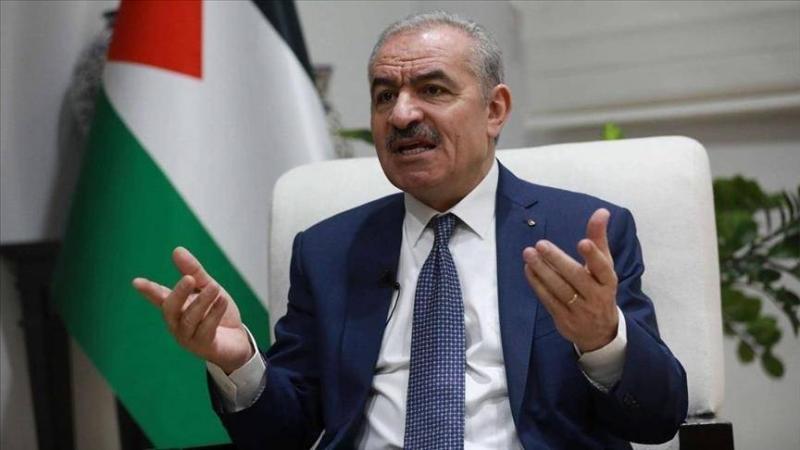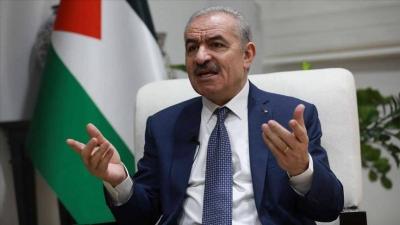Palestinian Prime Minister Mohammad Shtayyeh announced that international pressure on the Palestinian Authority to change its leadership and intensify reforms distracts from the necessity of reaching a political horizon to establish the foundations for peace following the Gaza war. In an interview with Reuters, he called for international intervention to end the decades-long conflict, stating that the United States, which has the greatest regional influence, has so far failed to use its influence effectively.
"What we need is a tomorrow for all Palestinian territories. What we need to see is the end of the Israeli-Palestinian conflict and the realization and implementation of a two-state solution," he said. There remains uncertainty regarding the future plans for Gaza after Israeli forces conclude their continuous incursion that has lasted for weeks, but there is widespread international support for assigning a prominent role to the Palestinian Authority, which currently exercises limited governance in the occupied West Bank.
However, the Authority, which was established following the signing of the Oslo Accords in 1993, is facing accusations of ineffectiveness and corruption, with the U.S. pressuring it to change its leadership, particularly President Mahmoud Abbas, who is 88 years old. U.S. Secretary of State Antony Blinken has repeatedly stated that Washington sees the two-state solution, with an independent Palestinian state alongside Israel, as the only viable solution. He is pressuring Abbas to combat corruption, empower civil society, support press freedom, and inject new blood into the leadership of the Authority, which has seen declining support among Palestinians for years.
Shtayyeh stated that the Palestinian Authority has already put forward its reform proposals and that focusing on internal challenges is distracting. A close ally of Abbas, Shtayyeh participated in the Palestinian negotiating team at the Madrid Peace Conference in 1991. He continued, “The issue for us is, ‘give us a political horizon,’” adding that the U.S. has so far failed to exert the necessary pressure on Israel to fulfill its peace commitments.
He further commented that “when the Americans come here, they have nothing to offer. When they have nothing to offer, they start talking about injecting new blood into the Palestinian Authority.”
Shtayyeh criticized the U.S. for refusing to allow the United Nations to demand an immediate ceasefire while simultaneously urging Israel to spare the blood of civilians in Gaza, calling it a "contradiction." More than 18,000 people have been killed in Gaza. He emphasized, "This is a contradiction that should not be present. The United States can exert serious pressure on the Israelis; the United States can order Israel to stop the war."
Shtayyeh's comments come after the U.S. officially used its veto power to prevent the UN Security Council from calling for a ceasefire, despite warnings from UN Secretary-General Antonio Guterres that the ongoing two-month war could pose a global threat. He stated, "What is required today from the Security Council is to say, with a very clear timeline, that the Israeli occupation of the Palestinian territories since 1967 must end. This is the only way out."
He called for an immediate ceasefire, stating that the inhabitants of Gaza are facing famine and that it is essential to drop emergency food supplies from the air to avoid catastrophe. “Our people are starving. There are no medical supplies. There is no food," he said.
Israel insists on maintaining security control over Gaza to ensure that a Hamas attack, which it claims resulted in the deaths of 1,200 Israelis and foreigners and the abduction of 240 hostages to Gaza, does not occur again. Shtayyeh noted that U.S. President Joe Biden, Blinken, and other U.S. officials have spoken “very well politically” about a two-state solution and ending the occupation, but verbal support is not sufficient.
He added, “What we really need from the United States is any kind of actionable measures. We need Washington to act, not just to talk. There are numerous actions that Washington can take, but it isn’t taking them.”




